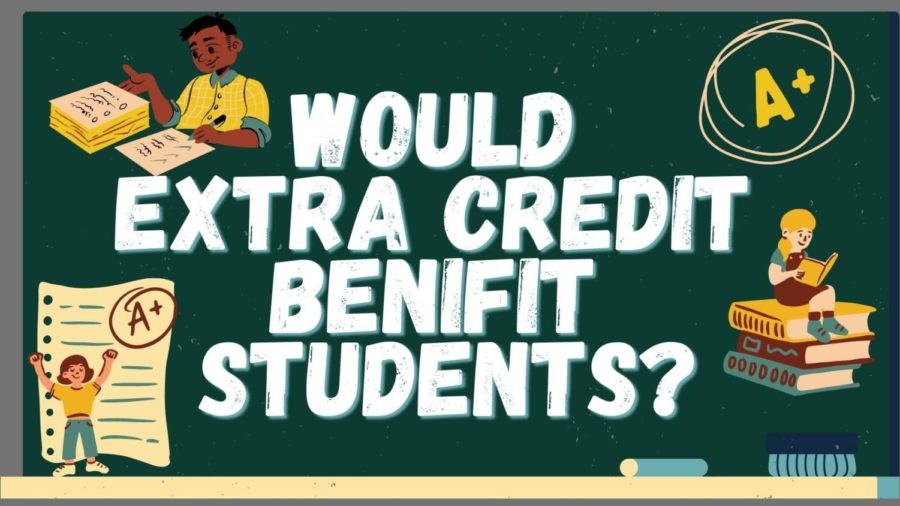Changes to Extra Credit Policy Would Benefit Students
Extra credit is a highly debated topic among students and teachers everywhere. In Montgomery County Public Schools (MCPS), extra credit assignments are prohibited with no exceptions, and the county lacks reasoning for why they have this policy. However, extra credit assignments have many upsides and could be heavily beneficial to students; thus, MCPS should revise their grading policies to allow it.
Extra credit allows students to learn and grow from their past academic mistakes, and it is proven that students are more likely to get passing grades when given extra credit opportunities.
President of California State University, Stanislaus, Ellen N. Junn, conducted a study to see the effectiveness of extra credit assignments.
“Those attempting the extra credit assignment improved their test performance from midterms to final exams. They were more likely to earn at least a grade of C and less likely to drop out of the course than the matched control group. They also evaluated the experience quite positively,” Junn wrote in Empowering the Marginal Student: a Skill-based Extra-credit Assignment.
For high school students, getting a bad grade and feeling like there is no way to improve it can be detrimental to one’s mental health and lead students to give up on their class, thinking they may fail regardless.
In Junn’s study, the control group of students with failing grades who were not given extra credit opportunities performed significantly worse than the other students. Furthermore, 6 of the control group students disappeared from class and never took the final exam.
“One possible explanation for their disappearance may be that students with exceptionally poor scores who were not given special extra credit options may have felt helpless and cut their losses. In contrast, no students with the extra-credit assignments dropped out of the course or failed to show up for the final exam,” Junn explained.
Despite the many benefits of extra credit, there are still some downsides that worry students and teachers, such as some students getting an unfair advantage through favoritism.
“I know that in high school I worked hard for my A, but then I would see other students that would start to play favorites with the teacher, and [the teachers] would give them extra credit just randomly,” RHS English teacher, Sean Pang, said.
For extra credit to be offered in Montgomery County responsibly, there would need to be strict guidelines on what is and isn’t allowed in order to make sure that points are being allocated fairly.
One idea to keep points fair would be the addition of a few extra credit questions at the end of a test, which are, of course, optional and would only help one’s grade– not hurt it. This would provide every student with the same opportunity, and the grades would be awarded based on academics, not teacher favoritism.
Another idea would be a choice between two assignments, one of which requires more work and effort but gives extra credit work in return. For example, students can pick to write a 2-page essay or a 4-page essay.
There are ways to make extra credit assignments fair, and simply denying all MCPS students the opportunity to improve is an unwarranted loss
This is junior Olivia Finnegan’s first year as a staff writer for the Rampage. She is excited to get a taste of the journalism program and work on expanding...












